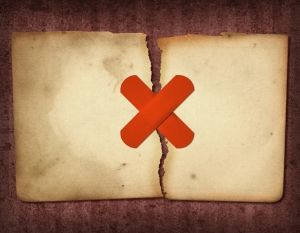Understanding Barriers to Accessing Mental Health Treatment During Times of Suicidal Thinking
Understanding Barriers to Accessing Mental Health Treatment During Times of Suicidal Thinking – Consumer Perspectives
Colorado has the seventh highest suicide rate in the United States. Suicide is the second leading cause of teenage death in Colorado and the 8th leading cause of death for adults. Each suicide leaves at least 6 bereaved family and friends. Each year, over 185,000 people are traumatically impacted by the suicide of someone they care about.
In reviewing 2006 adverse incident data, Colorado Health Networks’ Quality Team learned that 46% of individuals who had attempted or completed suicide did so within 7 days of receiving services. This raised the question about why consumers were not disclosing the fact that they were feeling suicidal to their providers.
Colorado Health Networks conducted 8 focus groups with adult consumers to explore the barriers to effective treatment of suicidal thinking. 100 unique adult consumers, ages 18 to 63 participated in the focus groups, representing most major diagnostic categories. All consumers were currently receiving, or had received within the previous year, services from their community mental health centers.
Six questions were asked in the focus groups:
In your darkest moment, what gave you hope?
Perseverance – Persevere because you know the feeling won’t last forever
Family Ties – Knowledge that harming oneself would also harm loved ones.
Distracting oneself – Deliberate action to reduce crisis atmosphere that is more than internal process, i.e. listening to uplifting music.
Spirituality/Faith – Spiritual Beliefs, Formal Religion, Prayer
Connecting to Others – Family, Friends, Pets, Coworkers, does not include others in Recovery or treatment professionals
Treatment by Professionals – Professional persons, medications, provider institutions i.e. hospital, clinics, formal clinical techniques
Personal Ethics – Personal belief that suicide is wrong.
Other – Emotional resilience, recovery initiatives, learning.
What are the things you do to sustain hope in your life?
Distracting oneself – Deliberate action to reduce crisis atmosphere that is more than internal process, i.e. listening to uplifting music.
Spirituality/Faith – i.e. read the bible, pray, look to my higher power.
Connecting to Others – Family, Friends, Pets, Coworkers, does not include others in Recovery or treatment professionals
Personal Ethics – Personal belief that suicide is wrong.
Emotional Resilience – Thoughts, Self Dialogue, Feelings, Realizations, i.e. I take pride in myself, Look for a brighter side to the situation
Perseverance – Carry on because the feeling won’t last forever
Family Ties – Children, other family loved ones.
Other – peer groups, learning, health/wellness practices, professional intervention, recovery initiatives.
What kinds of things do you do to avoid harming yourself?
Doing/ Distracting – i.e. Exercise, Play Video Games, Write poetry, get drunk.
Change thinking/ self talk – focused conscious efforts to change mood or thinking; redirect thoughts;
Treatment by Professionals – Professional Persons, Provider Institutions i.e. hospital, clinics, formal clinical techniques such as DBT.
Connecting to Others – Family, Friends, Pets, Coworkers, does not include others in Recovery or treatment professionals; Talk to family, Play with dog
Spirituality/Faith – i.e. read the bible, pray, look to higher power; meditate
Create a safe environment – remove guns; call a friend who will protect me.
Responsibility to/ for others – think about children; think about how others will feel if I’m gone.
Would you tell a therapist if you were thinking of harming yourself?
No – 22%
Yes – 40%
Maybe – 38%
What would keep you from telling your doctor or therapist if you were feeling like you were going to harm yourself?
Stigma; Lack of Trust – fear of professional’s stigma surrounding suicide.
Consequences of Hospitalization – Fear of hospitalization, jail, loss of privileges, loss of nicotine (in hospital), loss of rights, job or financial loss while hospitalized.
Damaging the Therapeutic Alliance – lose respect from providers; damage the relationship.
Fear of Over-reaction by professionals – can’t just talk about it (suicide) because the professional is required to act on it; Telling would make it worse
No Barriers – I would tell a professional; nothing would keep me from telling a professional.
Validation of fear – if the professional acted on it, I would know I was losing my mind.
Assert the Right of Suicide – It’s my right to commit suicide if I want; it’s my life.
What could our therapist do differently that would make it easier for you to talk to them when you felt like harming yourself?
Reinforce Understanding/ Building Trust – Issues regarding trusting therapists and other mental health professionals i.e. Reassure the person they won’t be hospitalized permanently, try to be empathetic and understanding of consumer’s pain
Respect consumer – This included statements about the therapist interactive behavior in treatment sessions i.e. be empathetic and compassionate, don’t be condescending or god-like
Alternative Delivery of Services – i.e. Offer something other than hospital, don’t just increase the
medications,
Be Open-minded, less judgmental – i.e. be less professional, more human with me, Make me a part of the decision – open up a dialogue on what we should do, or don’t sugar coat things, be honest
Check in frequently – do risk assessments; ask about my pain level; do an emotional pain assessment.
Stop Psychobabble – Talk to clients in language they understand; don’t use condescending words or language; give a clear explanation of the process.
Shared Decision Making – work with me; let me be part of the decision making;
Education about Consequences – Wanting the professional to discuss the boundaries, i.e. Letting the person know ahead of time what the therapist’s obligations (legal) are to disclose you are feeling like hurting yourself. Talk with the person about the consequences of suicide (tell the person what the physical and legal consequences are, i.e. what might happen if you tried to poison yourself)




